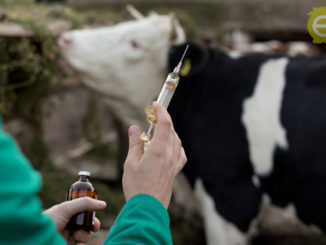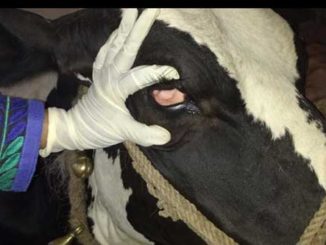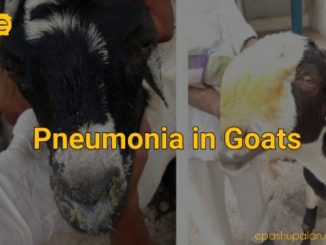Infectious diseases in animals pose a serious and continuing threat to food security, food safety, national economies, biodiversity and the rural environment. An infectious animal disease can spread beyond the farm where it first occurs. It can cause monitory loss to other farming businesses and to the economy at large, and can pose a threat to public health. That is why the government helps to prevent and combat animal diseases. Livestock owners can take following important steps for controlling infectious diseases in animals.
- Proper maintenance of barn or shed with respect to sanitation and disposal of sewage.
- Animals should be kept in a clean, well lighted and well ventilated shed (place) with adequate floor space and head space.
- Avoidance of damp floor and muddy housing system.
- Provision of adequate clean drinking water.
- Provision of exercise for animals.
- Fly repellents may be used to ward off the insect population.
- Adoption of hygienic measures against ecto-parasites (ticks and lice)
- Proper disposal of infected litter and carcass.
- Proper disposal of after birth (placenta/foetal membrane).
- Regular grooming of animals, cleaning of animal’s body to be done.
- Routine deworming to be carried out.
- Disinfection of the barn/byre at regular interval with formalin (10 per cent), caustic soda (10 per cent), phenol, lime or bleaching powder.
- Regular screening of animals against Tuberculosis, Brucellosis and Paratuberculosis.
- Routine prophylactic vaccination against common bacterial and viral diseases.
- Isolation of sick animals from apparently healthy animals for treatment.
- Provision of strict quarantine of newly introduced animals.
- Movement restriction of animals suffering from contagious diseases.
- Dead animals (carcass) should be properly disposed off either by deep burial with lime and bleaching or by incineration (burning).
- Postmortem (autopsy) examination to be carried out by qualified veterinarian for knowing the cause of death.
- Carcass should not be opened in an open place to avoid contamination of soil.
- Serological tests to be carried out to ascertain the presence of antigens.
- Aborted foetus and foetal membrane should be disposed off properly.
- Proper care should be taken to keep the newborn soon after its birth.
- Perineum and udder of the cow should be washed with clean water before calving and during milking.
- The navel region of the calf should be properly disinfected with 2 per cent Tr. Iodine solution soon after birth.
- Calf should be fed with colostrum @ 1/10th of calf’s body weight preferably within the first hour after the birth, and to be continued for 3-5 days. If sufficient colostrum is not available, colostrum substitute should be fed to the newborn calf
- Crow scavenging, and entry of stray dogs to the herd needs to be restricted
- Insecticides, rodenticides etc. to be used with caution for the control of pests, insects, rats and rodents.






Be the first to comment